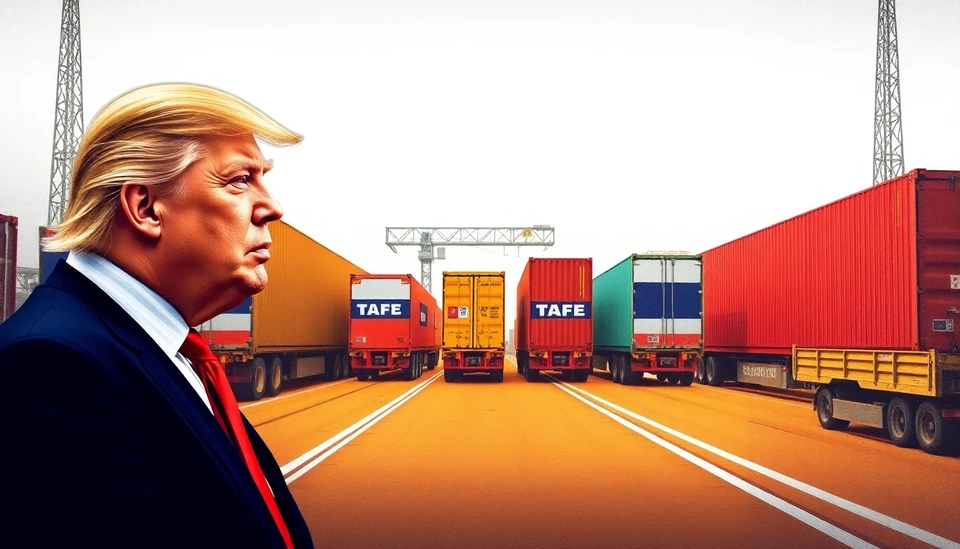
In a bold move that reverberates through international trade, former President Donald Trump has threatened to reintroduce tariffs on certain products imported from India and Thailand, invoking an "eye for an eye" strategy. This aggressive stance underscores Trump's commitment to prioritize American jobs and industries, particularly in sectors where he perceives competition as unfair or damaging to US interests.
These potential tariffs could target a variety of goods, ranging from textiles to electronic components, putting significant pressure on both South Asian economies. Experts warn that such actions may lead to retaliation from these nations, further escalating trade tensions and impacting global supply chains.
Trump's rhetoric seems to stem from a sense of frustration with ongoing trade deficits and perceived unfair trade practices that could hinder the domestic economy. By implementing tariffs, he aims to protect American manufacturers from what he describes as exploitative practices in foreign markets, a stance that has historically resonated with his political base.
The repercussions of these proposed tariffs could be profound. India and Thailand, already facing economic challenges, stand to suffer as their products become more expensive in the US market. This could lead to decreased exports, negatively affecting their economic growth and potentially leading to job losses in critical sectors.
Moreover, this threat comes at a time when both countries are striving to strengthen their export markets and diversify their economic partnerships. For example, India has been actively seeking to expand its trade links with various nations, hoping to reduce its own reliance on traditional partners. However, an increase in tariffs could severely disrupt these efforts.
For Thailand, which is heavily reliant on exports, particularly in the automotive and electronics sectors, the implications of retaliatory tariffs could be similarly disastrous. The Thai government is concerned that an escalation in trade tensions could derail progress made in securing free trade agreements with other regions.
Industry leaders from both countries have expressed alarm over the uncertain trade landscape and are calling for diplomatic avenues to address grievances rather than punitive measures. They emphasize the importance of constructive dialogue to resolve issues surrounding trade practices without spiraling into economic conflict.
The global business community remains watchful, as the outcome of this situation could set important precedents for international trade relations moving forward. Both India and Thailand's responses will be keenly observed, particularly if they choose to retaliate against US goods with their own tariffs, potentially leading to a tit-for-tat trade war.
As the situation unfolds, stakeholders are urged to consider the long-term ramifications of such aggressive tariff policies and the necessity of maintaining healthy trade relations. The stakes are high, and the choices made in the coming weeks could significantly impact global economics.
As Donald Trump moves forward with his plans, the international community watches closely, poised to react to this latest twist in global trade negotiations. The outcomes of these tariff threats will not only affect India and Thailand but also shape the global economic landscape for years to come.
#TrumpTariffs #IndiaEconomy #ThailandEconomy #InternationalTrade #GlobalEconomy #TradeTensions #EconomicImpact
Author: Rachel Greene




